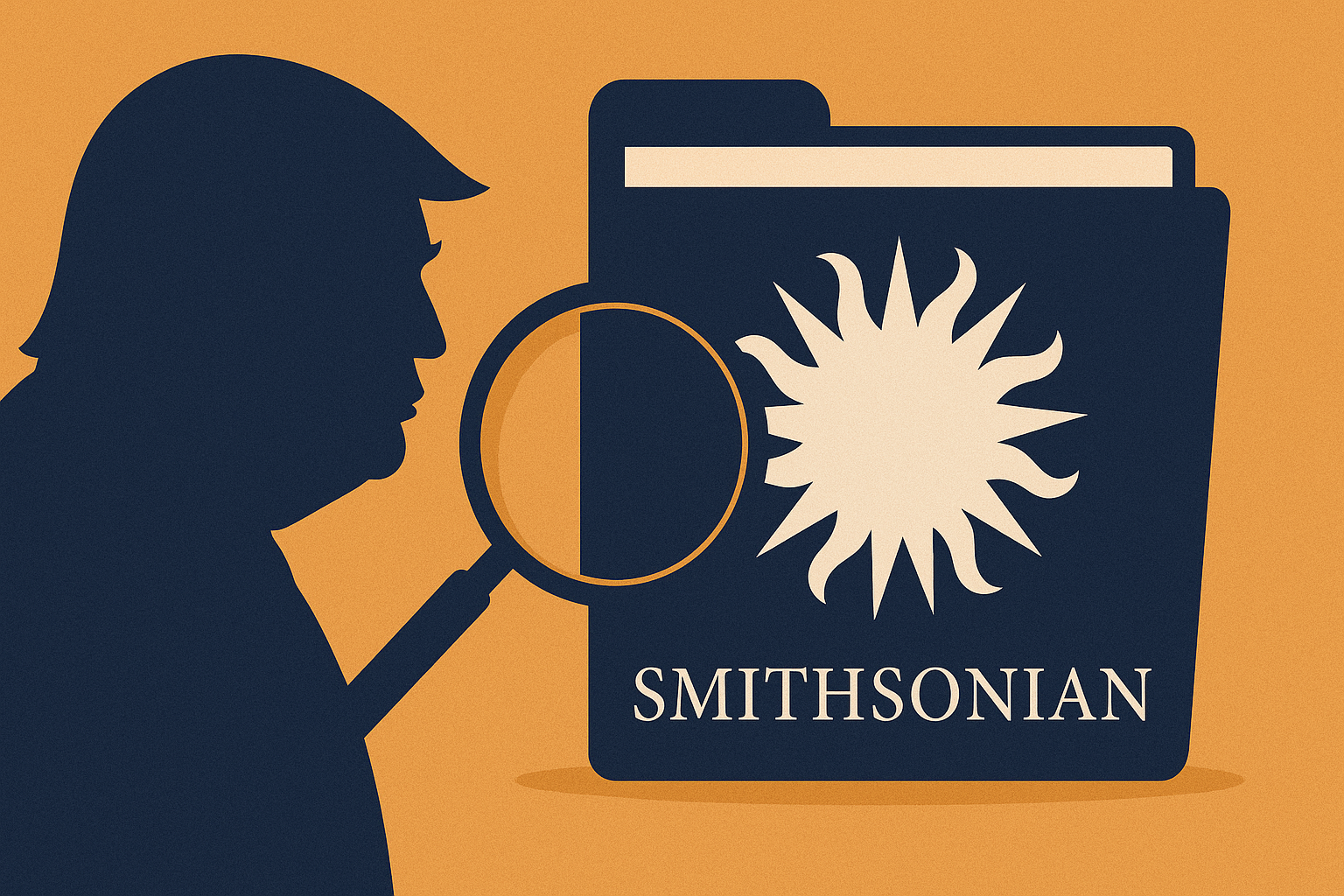The Trump administration has launched a sweeping review of the Smithsonian Institution, aiming to align its exhibits and materials with the White House’s directive to emphasize “American exceptionalism” and eliminate what it deems “divisive” or “partisan” narratives.
Scope and Goals of the Review
In an August 12 letter to Smithsonian Secretary Lonnie Bunch III, administration officials outlined plans for a “comprehensive” evaluation of the museum system’s content. The review will assess whether exhibits meet the administration’s standards for “unity, progress, and enduring values” in historical interpretation.
The letter sets a 120-day deadline for the Smithsonian to begin “content corrections,” replacing language considered ideologically driven with what the administration calls “unifying, historically accurate, and constructive” descriptions. The process will focus on eight museums, including:
-
The National Museum of American History
-
The National Museum of African American History and Culture
-
The National Museum of Natural History
-
The National Museum of the American Indian
Officials intend for the review to be completed by early next year, coinciding with the 250th anniversary of U.S. independence.
Smithsonian’s Response
The Smithsonian released a statement affirming its commitment to “scholarly excellence, rigorous research, and the accurate, factual presentation of history,” adding that it would review the administration’s letter with these principles in mind.
Founded in 1846, the Smithsonian operates as a public-private partnership governed by a 17-member Board of Regents, which includes Vice President J.D. Vance, Chief Justice John Roberts, members of Congress, and public appointees. Federal funding covers about 62% of its budget.
Political Context
The review follows a series of high-profile cultural initiatives from Trump’s second administration, including actions against Harvard University, the Kennedy Center, diversity programs, and transgender athletes. The White House framed the move as part of a broader push to “restore truth and sanity to American history,” referencing a March executive order that included a section titled “Saving Our Smithsonian.”
Critics, including some historians, warn the directive could compromise balanced historical narratives. The Smithsonian has already been involved in related controversies, including the removal—and later restoration—of references to Trump in an exhibit on presidential impeachment.



